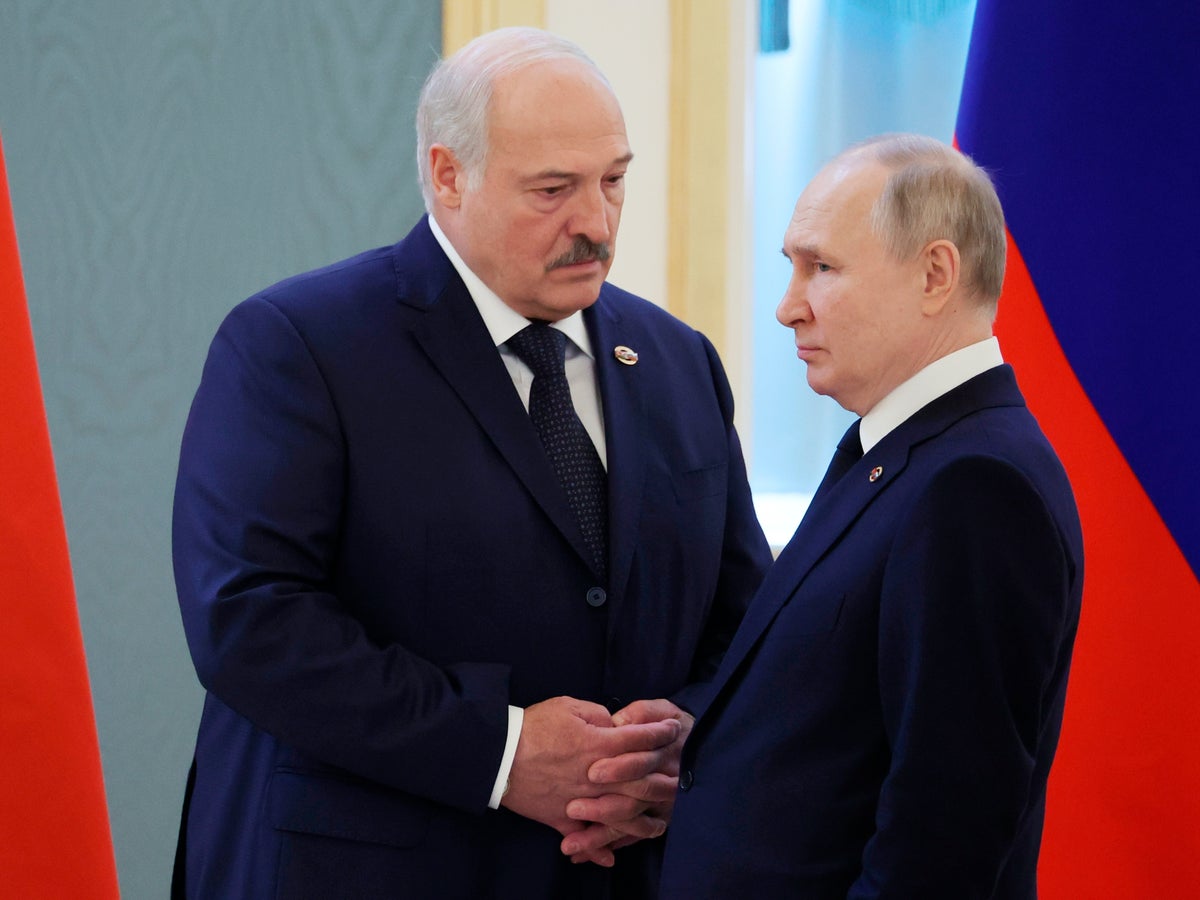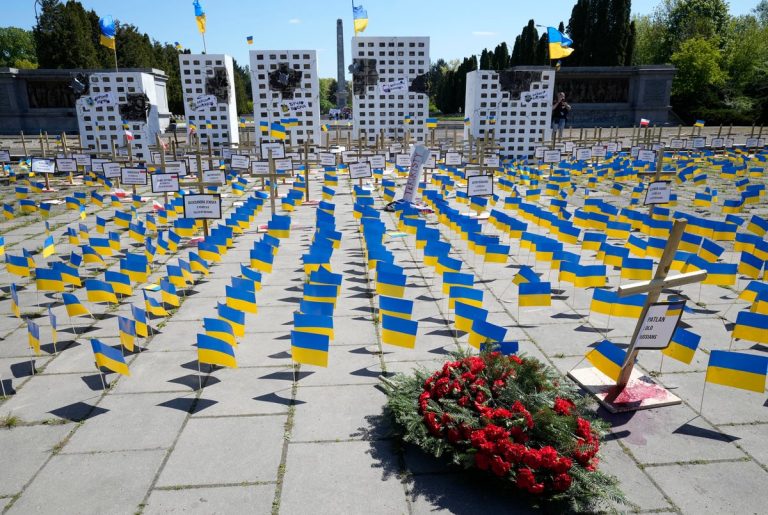Ukraine accuses Russia of planning ‘false flag’ attack in Belarus to draw Minsk into war

For free real time breaking news alerts sent straight to your inbox sign up to our breaking news emails
Sign up to our free breaking news emails
Ukraine has accused Russia of planning a „false flag” attack on an oil refinery in Belarus in an attempt to draw Minsk into the war, as tensions rise on Nato’s eastern border.
While Alexander Lukashenko has so far avoided being dragged into the full-scale conflict by his close ally Vladimir Putin, the Belarusian president allowed Moscow’s troops to use Belarus as a staging ground for their invasion last February, and has agreed to host Russian nuclear weapons.
Concerns have been brewing in the West since Mr Lukashenko agreed to take in Wagner mercenaries exiled from Russia after their shortlived mutiny, with Nato member Poland warning this week of the threat posed by the “extremely dangerous” fighters, as it scrambled troops to their shared border.
The Security Service of Ukraine (SBU) has now accused Moscow of preparing to stage a “false flag” attack at the Mozyr oil refinery, allegedly to be carried out by Russian military and intelligence forces sent to Belarus disguised as Wagner mercenaries.
“Russia plans to accuse Ukraine of what they have done in order to try once again to draw Minsk into the full-scale war against our state,” the service said in a statement, without providing evidence.
It said its assertions were based on information obtained from several sources, including a Russian serviceman captured near Zaporizhzhia, whose mobile phone was also analysed.
There was no immediate comment on the Ukrainian statement from Russia or Belarus.
The Russian soldier had already been “instructed to relocate to Belarus” disguised as a Wagner mercenary, and had received information about a “special mission” at the Mozyr refinery, with cyber experts uncovering deleted correspondence containing further details of the operation, the SBU said.
Mozyr is one of two refineries in Belarus and is situated close to the border with Ukraine, to whom Belarus had formerly exported around a third of its petroleum products, according to the Interfax news agency.
Polish border guards patrol the area of a newly built metal wall on the border between Poland and Belarus
(AP)
It is not the first time Kyiv has expressed fears of Russian plans to use such a deception to draw Belarus into the war, having issued a similar warning in February shortly after Mr Lukashenko vowed that Minsk would only enter the conflict if attacked by Ukraine.
In a further development on Friday, Lithuania revoked the residency permits of 910 Belarusian citizens and 254 Russians who it claimed were a threat to national security, after handing them a questionnaire asking their opinions of the Ukraine war and status of annexed Crimea.
It came a day after Lithuanian president Gitanas Nauseda and Poland’s premier Mateusz Morawiecki held an urgent meeting, with the leaders of both EU and Nato nations warning that they were bracing for provocations by Russia and Belarus amid “increasing pressure on the borders”.
“We need to be aware that the number of provocations will rise. The Wagner group is extremely dangerous and they are being moved to [Nato’s] eastern flank to destabilise it,” Mr Morawiecki said, after the meeting in eastern Poland, close to its borders with Lithuania, Belarus and Russia.
The meeting came two days after Warsaw accused two Belarusian helicopters of flying briefly at low altitude into Polish air space – which Belarus denied, before summoning Poland’s chargé d’affaires to the foreign ministry in Minsk.
Poland has now begun to send more than 1,000 troops to its eastern border, as Lithuania’s president warned that there could now be more than four times that number of Wagner fighters in Belarus.
“We must not only talk about measures at the national level but also … what should be done if this situation becomes even more complicated, including the closure of the border with Belarus,” Mr Nauseda said. “This should be done in a coordinated manner between Poland, Lithuania and Latvia.”
Mr Lukashenko has repeatedly taunted Poland over the new presence of Wagner troops in Belarus, joking that Warsaw should thank him for keeping the mercenaries in check. Otherwise, they “would have seeped through and smashed up Rzeszow and Warsaw in no small way”, he claimed.






